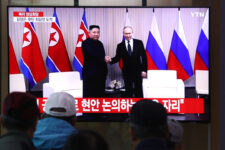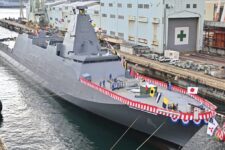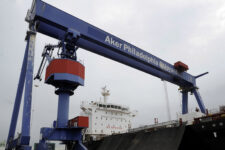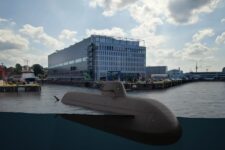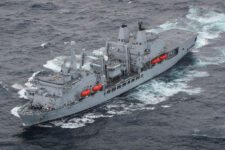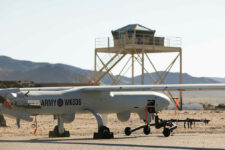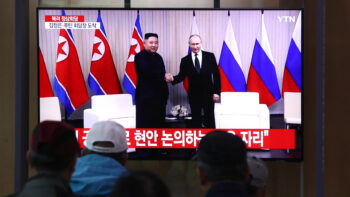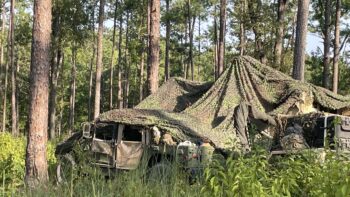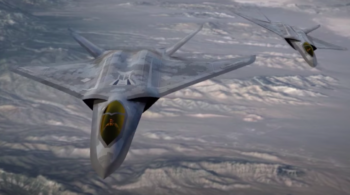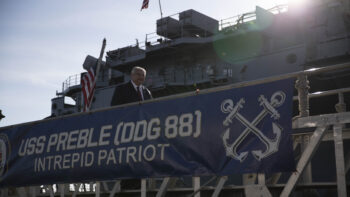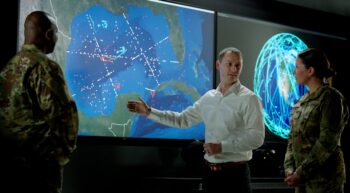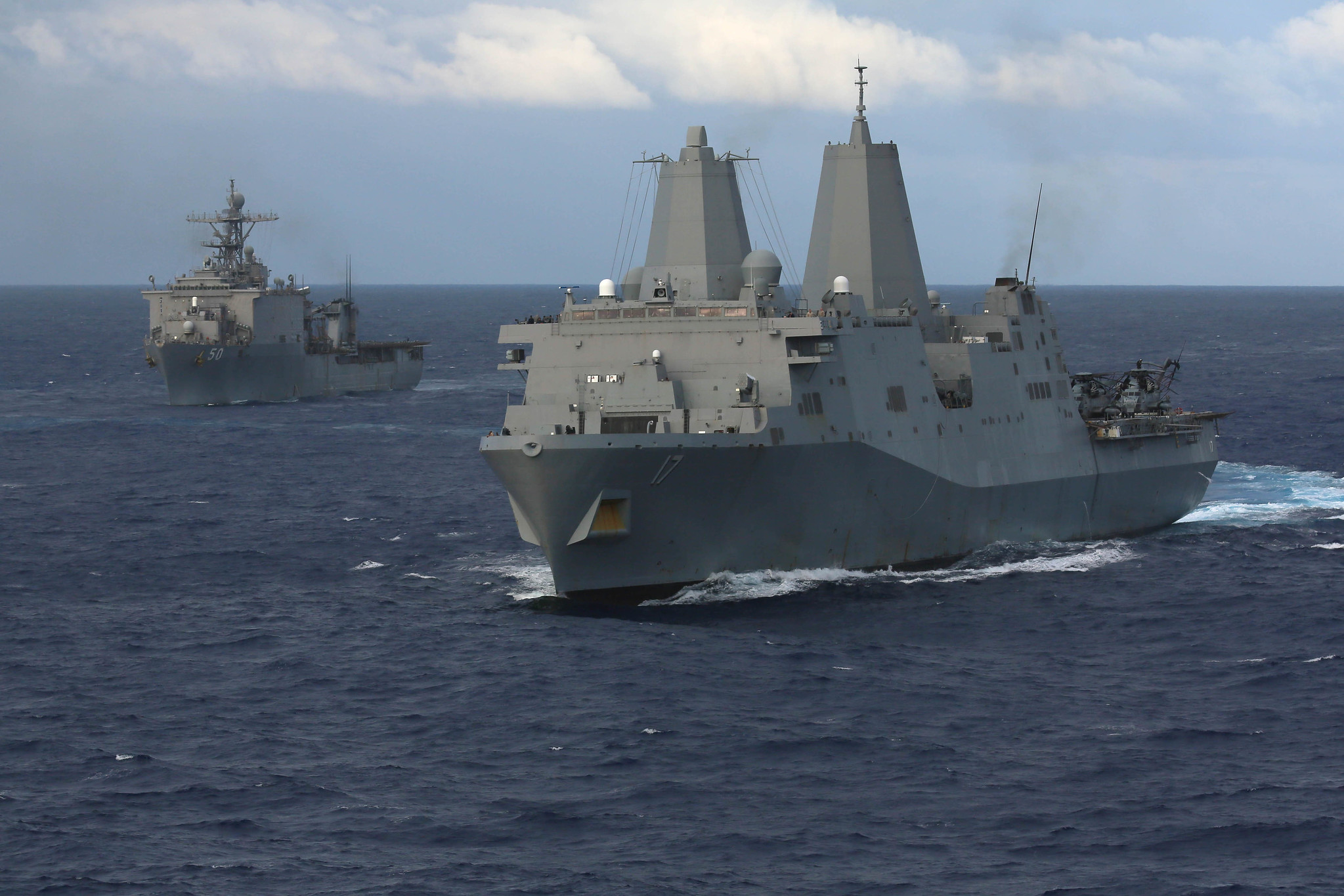
USS San Antonio (LPD-17), the lead ship of her class of amphibious transport dock ships.
WASHINGTON: The Navy is rushing to award several major shipbuilding contracts several months early to keep shipbuilders on the job and save smaller suppliers in danger of going out of business amid the wider manufacturing halt cause by the coronavirus crisis.
The biggest is a contract to build the next San Antonio-class amphibious transport dock ship, (LPD 31) which serves as a jumping-off point for Marines heading ashore.
The push to accelerate work is part of a wide-ranging effort to buttress the shipbuilding industry and the thousands of small suppliers that make parts for the Navy. The Navy’s top acquisition official, James Geurts, told reporters Wednesday morning the Navy is worried about the effect the state and local shutdowns could have on its shipbuilding and repair efforts. “It’s a national emergency and this is critical national infrastructure,” so the issue is, “how do we orient quickly to get at this aggressively and try not to be reactive in nature.”
Ingalls Shipbuilding in Mississippi is currently building the USS Richard M. McCool (LPD 29) and Harrisburg (LPD 30), and would be in line to start work on the next ship in the class. The Navy is also pushing to move forward the award for a landing craft program that was slated to kick off later this year. Funding for the new LPD was approved in the 2020 NDAA defense policy bill which authorized $525 million for the LPD Flight II program.
Any breaks in the build and repair schedule would throw the Navy’s planned deployments out of whack but also could be devastating to the thousands of small businesses across the country that literally provide the nuts and bolts that make the complex machinery that powers the fleet.
“Nobody right now is in the position to float gaps,” Geurts said. His staff has done a detailed analysis of the Navy’s industrial base. They are looking for ways to help the smaller companies not only through moving forward orders, but also finding money for research and development that would help small, innovative companies.
“I hear stories of second-, third- and fourth-tier suppliers that were worried about going out of business, worried about how they would keep paying their salaries, and our ability to move and accelerate work into the defense base and then have that be pushed out to the suppliers is absolutely critical, because if they’re not there it won’t matter when we’re ready to recover,” Geurts said.
Geurts is gathering all of the large shipbuilders and shipyard owners several times a week to check on the status of the workforce and what problems they see coming if the current crisis continues.
At the center of these worries is the nation’s largest shipbuilder, Huntington Ingalls, which is the only company that builds both Nimitz and Ford-class aircraft carriers, in addition to sharing work on Virginia-class submarines with Electric Boat.
The company has taken steps to attempt to apply social distancing at its shipyards, and has staggered shifts to accommodate workers who might now need to work different hours, company officials say.
In an interview earlier this week, several Huntington executives told me they’ve reached out to over 2,000 suppliers in 48 of the 50 US states, and are working to speed up and push contracts as far down the supply chain as possible to keep these small businesses running.
“We’re gonna have to brave the storm together and especially some of the smaller suppliers,” said Lucas Hicks, vice president of new construction aircraft carrier programs.
“We need their products today, but we also need them in 90 days, so we want to help them brave the storm,” he added. “We’ve actually changed some payment terms on some of our supplier contracts to try to make sure that we can front them what they need to stay afloat. We’re doing some creative stuff to try and help them be able to weather the storm.”
The company hasn’t seen any reduction in parts received yet, but acknowledges that the situation changes on a daily basis, as different parts of the country feel the pain of local shutdowns in different ways.
Lucas said Huntington does not anticipate it will stop work, but is allowing employees the option of working from home and providing liberal leave to others.
Eventually all of this “will have an impact,” especially if the shutdowns are prolonged. “At some point, if it extends for months and months at the rate we’re on, it would have an impact but it’s too early to tell.”
Geurts appears to see things the same way. The crisis and its downstream effects is “going to have both a time dimension and geography dimension, and so it will remain a fluid situation,” when it comes to how much the defense industry, and the navy, are affected, Geurts said.
Everything comes down to Ukraine: 5 stories from Europe in 2024
Of all that happened during the Ukraine conflict in the last 12 months, the deployment of North Korean troops to the Russian border territory of Kursk stands out from the pack.
